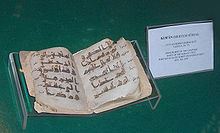A feast which is not just of Roman Catholic.... so interesting! :)
Anyhow my best wishes to anyone of every faith and to those of no faith at all ;)
For differing reasons the doctrine in its particular Catholic form is generally not shared by either Eastern Orthodox Churches, the Anglican Communion, or by the various Protestant communities.
[edit] Anglicanism
Belief in the Immaculate Conception is not a doctrine within Anglicanism, although it is believed by some moderate Anglicans and most Anglo-Catholics.[48] In Common Worship 8 December is designated a Lesser Festival in honor of the Conception of the Blessed Virgin Mary.[49] This feast includes no specific mention of the Roman Catholic dogma of the Immaculate Conception, but bears witness to the unique gift of grace of Mary.[50]
The report "Mary: Faith and Hope in Christ" by the Anglican-Roman Catholic International Commission, concluded that the teaching about Mary in the two definitions of the Assumption and the Immaculate Conception can be said to be consonant with the teaching of the Scriptures and the ancient common traditions.[51] But the report expressed concerns that the Roman Catholic dogmatic definitions of these concepts implies them to be "revealed by God" and stated that: "The question arises for Anglicans, however, as to whether these doctrines concerning Mary are revealed by God in a way which must be held by believers as a matter of faith."[52]
[edit] Eastern and Oriental Orthodox
Orthodox Christians say that Mary was without sin for her entire life, but they generally do not share the Augustinian and Medieval Roman Catholic Church's views on original sin.[53] In Ethiopian Orthodox tradition, which is Oriental Orthodox rather than Eastern Orthodox, there is some suggestion that Mary was created immaculate, as seen in the following:
He cleansed
eve's body and sanctified it and made for it a dwelling in her for
adam's salvation. She [i.e.,
mary] was born without blemish, for He made her pure, without pollution, and she redeemed his debt without carnal union and embrace...Through the transgression of
eve we died and were buried, and by the purity of
mary we receive honour, and are exalted to the heights.
[54]
[edit] Old Catholicism
Old Catholics do not reject the Immaculate Conception of Mary, but Rome's dogma regarding it, because Old Catholics reject Papal infallibility and do not believe the Pope can, by himself, define a dogma.[55]
Some Old Catholic parishes venerate Mary as the Immaculate Conception and celebrate the Feast of the Immaculate Conception. Old Catholics hold that the faithful whose conscience does not bind them to belief in the Immaculate Conception, who do not believe it in good conscience, cannot be required to believe it because it has not been infallibly defined as dogma by the Church, the Pope having no authority to act in the capacity of the Church.[citation needed] This may also apply to the teachings of the various branches of the Liberal Catholic Church
[edit] Protestantism
Martin Luther, the founder of Lutheranism, who initiated the Protestant Reformation initially agreed with the Roman Catholic dogma of the Immaculate Conception by saying: "Mary is full of grace, proclaimed to be entirely without sin. God's grace fills her with everything good and makes her devoid of all evil".[56] However, as of 1532 Luther stopped celebrating the feast of the Assumption of Mary and also discontinued his support of the Immaculate Conception.[57]
Most Protestants, besides Lutherans and other similar branches, reject the doctrine because they do not consider the development of dogmatic theology to be authoritative apart from biblical exegesis, and because the doctrine of the Immaculate Conception, is not taught in the Bible.[58] The formal pronouncement of Mary' s Immaculate Conception by the Catholic Church in 1854 alienated some Protestant Churches partly due to its implication that not all have sinned.[59]

Manuscript of the Chapter Mary from a 9th century
Qur'an, Turkey.
The third chapter of the Qur'an states beliefs in both the Immaculate Conception of Mary and the Virgin birth of Jesus.[60][61] The Qur'an mentions Mary over 30 times, traces her genealogy to Abraham and Noah and states the belief in her Immaculate Conception.[62]
George Sale reports, in his translation of the Qur'an, that the Immaculate Conception had long been an Islamic tradition.[63] William Bernard Ullathorne, a 19th century Catholic bishop stated that it is possible that the prophet Muhammad interacted with Christians in the great fair of Bosra and learned of the doctrine of the Immaculate Conception there.[64]
In the Islamic tradition of Muhammad, Mary and her Son were the only children who could not be touched by Satan at the moment of their birth, for God imposed a veil between them and Satan.[65] According to author Shabbir Akhtar, the Islamic perspective on Mary's Immaculate Conception is compatible with the Catholic doctrine of the same topic.[66]
This message was last edited by mariadecastro on 07/12/2010.